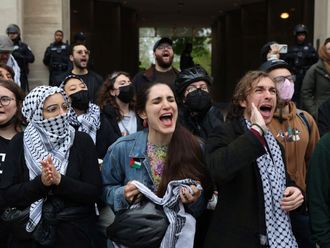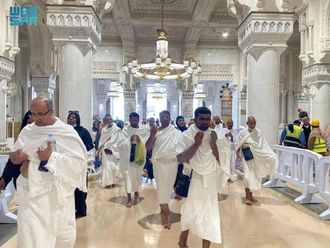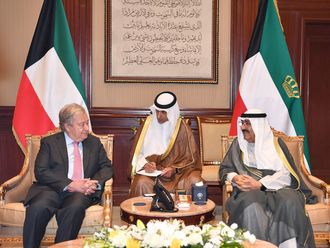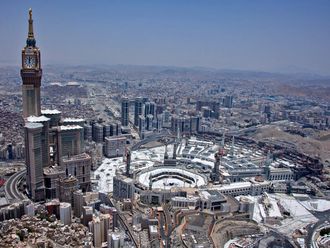Cairo: Popular uprisings sweeping the Arab world exposed biases by Western governments that supported Arab rulers for the sake of "stability" while turning a blind eye to their repressive policies, Human Rights Watch (HRW) said yesterday.
The New-York based group urged democratic governments to adopt persistent and consistent support for peaceful protesters and to press both autocratic rulers and newly emerging democracies to avoid intolerance and seeking revenge.
"The events of the past year show that the forced silence of people living under autocrats should never have been mistaken for popular complacency," HRW's executive director Kenneth Roth said. "It is time to end the ‘Arab exception'."
In some ways, the unexpected uprisings amounted to a slap to the United States and other Western governments, which had supported autocratic regimes that served as bulwarks against Islamists hostile to the West and appeared to offer stability in a volatile region.
Selective
Western governments also have been accused of being selective in supporting the protesters, with Nato airstrikes proving key to the ending the rule of slain Libyan strongman Muammar Gaddafi. Meanwhile, the West has stood largely on the sidelines amid continued protests in Bahrain, Yemen and Syria.
"The people driving the Arab Spring deserve strong international support to realise their rights and to build genuine democracies," Roth said in the group's annual report, which covers some 90 countries. He added that the Arab world is in a "transformative moment," and it will not be an easy one.
Human Rights Watch pointed to five main issues that dominated the relationship between Western governments and their Arab autocratic friends: the threat of political Islam, the fight against terrorism, support for Israel, protection of the oil flow and cooperation in stemming immigration. Even after the leaders of Egypt, Libya and Tunisia were toppled, Western governments remained hesitant to lean too hard on other shaky authoritarian leaders, the group said.
As an example, the watchdog group singled out the United States, saying it has been reluctant to "press Egypt's ruling military council to subject itself to elected civilian rule", nearly a year after Mubarak was ousted.
Roth acknowledged Western governments were re-evaluating their policies as new governments emerge in the region, but said changes have been selective. "The West has not put Bahrain under pressure, and other monarchs, to carry out reforms," he told The Associated Press in an interview ahead of the report's release in Cairo.
‘Majority preference'
The organisation also blamed the Western hesitation in part on the ascendence of political Islam in most of the countries that witnessed the fall of their autocratic rulers like Egypt, Libya, and Tunisia.
HRW urged the West to recognise that Islamists are the "majority preference," while keeping pressure on the emerging new governments to respect human rights, especially regarding women and religious minorities.












